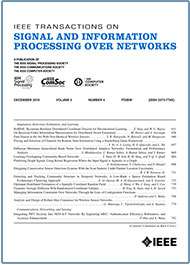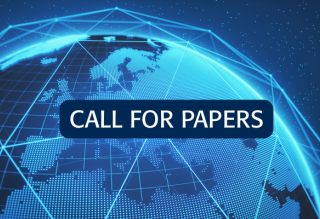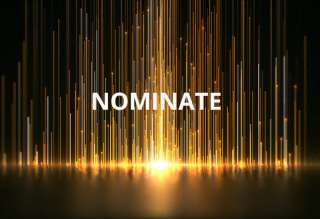- Our Story
- Publications & Resources
- Publications & Resources
- Publications
- IEEE Signal Processing Magazine
- IEEE Journal of Selected Topics in Signal Processing
- IEEE Signal Processing Letters
- IEEE Transactions on Computational Imaging
- IEEE Transactions on Image Processing
- IEEE Transactions on Information Forensics and Security
- IEEE Transactions on Multimedia
- IEEE Transactions on Signal and Information Processing over Networks
- IEEE Transactions on Signal Processing
- IEEE TCI
- IEEE TSIPN
- Data & Challenges
- Submit Manuscript
- Guidelines
- Information for Authors
- Special Issue Deadlines
- Overview Articles
- Top Accessed Articles
- SPS Newsletter
- SigPort
- SPS Resource Center
- Publications FAQ
- Blog
- News
- Dataset Papers
- Conferences & Events
- Community & Involvement
- Professional Development
- For Volunteers
- Information for Authors-OJSP
-
Home
Conferences Events IEEE Signal Processing Magazine IEEE SPL Article IEEE TIFS Article IEEE TMM Article IEEE TSP Article Jobs in Signal Processing Lectures Machine Learning Seasonal Schools Signal Processing News SPM Article SPS Distinguished Lectures SPS Newsletter Article SPS Webinar SPS Webinars SPS Webinar Series Webinar webinars
-
Our Story
What is Signal Processing?

The technology we use, and even rely on, in our everyday lives –computers, radios, video, cell phones – is enabled by signal processing. Learn More » -
Publications & Resources
-
SPS Resources
- Signal Processing Magazine The premier publication of the society.
- SPS Newsletter Monthly updates in Signal Processing
- SPS Resource Center Online library of tutorials, lectures, and presentations.
- SigPort Online repository for reports, papers, and more.
- SPS Feed The latest news, events, and more from the world of Signal Processing.
-
SPS Resources
-
Conferences & Events
-
Community & Involvement
-
Membership
- Join SPS The IEEE Signal Processing Magazine, Conference, Discounts, Awards, Collaborations, and more!
- Chapter Locator Find your local chapter and connect with fellow industry professionals, academics and students
- Women in Signal Processing Networking and engagement opportunities for women across signal processing disciplines
- Students Scholarships, conference discounts, travel grants, SP Cup, VIP Cup, 5-MICC
- Young Professionals Career development opportunities, networking
- Get Involved
-
Technical Committees
- Applied Signal Processing Systems
- Audio and Acoustic Signal Processing
- Bio Imaging and Signal Processing
- Computational Imaging
- Image Video and Multidimensional Signal Processing
- Information Forensics and Security
- Machine Learning for Signal Processing
- Multimedia Signal Processing
- Sensor Array and Multichannel
- Signal Processing for Communication and Networking
- Signal Processing Theory and Methods
- Speech and Language Processing
- Technical Working Groups
- More TC Resources
-
Membership
-
Professional Development
-
Professional Development
- Signal Processing Mentorship Academy (SigMA) Program
- Micro Mentoring Experience Program (MiME)
- Distinguished Lecturer Program
- Distinguished Lecturers
- Distinguished Lecturer Nominations
- Past Lecturers
- Distinguished Industry Speaker Program
- Distinguished Industry Speakers
- Distinguished Industry Speaker Nominations
- Industry Resources
- IEEE Training Materials
- Jobs in Signal Processing: IEEE Job Site
-
Career Resources
- SPS Education Program Educational content in signal processing and related fields.
- Distinguished Lecturer Program Chapters have access to educators and authors in the fields of Signal Processing
- Job Opportunities Signal Processing and Technical Committee specific job opportunities
- Job Submission Form Employers may submit opportunities in the area of Signal Processing.
-
Professional Development
-
For Volunteers
-
For Board & Committee Members
- Board Agenda/Minutes* Agendas, minutes and supporting documentation for Board and Committee Members
- SPS Directory* Directory of volunteers, society and division directory for Board and Committee Members.
- Membership Development Reports* Insight into the Society’s month-over-month and year-over-year growths and declines for Board and Committee Members
-
For Board & Committee Members
Popular Pages
Today's:
- Information for Authors
- (ICME 2026) 2026 IEEE International Conference on Multimedia and Expo
- Submit a Manuscript
- IEEE Transactions on Information Forensics and Security
- (ASRU 2025) 2025 IEEE Automatic Speech Recognition and Understanding Workshop
- IEEE Transactions on Multimedia
- IEEE Transactions on Signal Processing
- Inside Signal Processing Newsletter
- Signal Processing Cup
- Unified EDICS
- Information for Authors-SPL
- Meet SPS Member Arvind Rao
- Conference Call for Papers
- IEEE Signal Processing Letters
- Submit Your Papers for ICASSP 2026!
All time:
- Information for Authors
- Submit a Manuscript
- IEEE Transactions on Image Processing
- IEEE Transactions on Information Forensics and Security
- IEEE Transactions on Multimedia
- IEEE Transactions on Audio, Speech and Language Processing
- IEEE Signal Processing Letters
- IEEE Transactions on Signal Processing
- Conferences & Events
- IEEE Journal of Selected Topics in Signal Processing
- Information for Authors-SPL
- Conference Call for Papers
- Signal Processing 101
- IEEE Signal Processing Magazine
- Guidelines
Last viewed:
- SPS Scholarship Program
- IEEE JSTSP Special Issue on Advancing Signal Processing Algorithms for Fluid Antenna Systems (FAS)
- Technical Liaison Committee/Editorial Board
- IEEE Transactions on Computational Imaging
- IEEE Transactions on Signal Processing
- About IEEE Transactions on Signal Processing
- IEEE Transactions on Multimedia
- IEEE JSTSP Special Issue on Learning-Based Signal Processing for Integrated Sensing and Communications
- SPS Pioneers in IEEE History: Prof. Konstantinos N. (Kostas) Plataniotis
- Information for Authors
- 2025 14th International Symposium on Image and Signal Processing and Analysis (ISPA)
- Call for Proposals: IEEE MLSP 2026
- IEEE Transactions on Information Forensics and Security
- IEEE Transactions on Image Processing
- About Transactions on Image Processing
Cooperative Learning of Multi-Agent Systems Via Reinforcement Learning
You are here
Publications & Resources
Transactions on Signal and Information Processing over Networks
For Authors
Top Reasons to Join SPS Today!
1. IEEE Signal Processing Magazine
2. Signal Processing Digital Library*
3. Inside Signal Processing Newsletter
4. SPS Resource Center
5. Career advancement & recognition
6. Discounts on conferences and publications
7. Professional networking
8. Communities for students, young professionals, and women
9. Volunteer opportunities
10. Coming soon! PDH/CEU credits
Click here to learn more.
Cooperative Learning of Multi-Agent Systems Via Reinforcement Learning
In many specific scenarios, accurateand practical cooperative learning is a commonly encountered challenge in multi-agent systems. Thus, the current investigation focuses on cooperative learning algorithms for multi-agent systems and underpins an alternate data-based neural network reinforcement learning framework. To achieve the data-based learning optimization, the proposed cooperative learning framework, which comprises two layers, introduces a virtual learning objective. The followers learn the behaviors of the virtual objects in the first layer based on the adaptive neural networks (NNs). Specifically, the actor and critic NNs are applied to acquire cooperative behaviors and assess this layer's long-term utility function. Then another layer realizes the tracking performance between the virtual objects and the leader by introducing the local data-based performance index. Then, we formulate a resulting deterministic optimization problem and resolve it effectively with the policy iteration algorithm. This intuitive cooperative learning algorithm also preserves good robustness properties and eliminates the dependence on the prior knowledge of the multi-agent system model in the solution process. Finally, a multi-robot formation system demonstrates this promising development's practical appeal and highly effective outcome.
Introduction
Cooperative learning of multi-agent systems facilitates an agent to perform objectives by interacting with its neighbor agents, which has encountered remarkable growth in past years and will continue to increase, given its capability of improving robustness and efficiency [1], [2], [3]. Cooperative learning plays a significant role in various fields, including intelligent transportation [4], aerospace systems [5], smart grids [6], etc. Reinforcement learning, as one of the most practical learning branches, has attained substantial attention in the multi-agent systems' cooperative learning community due to its online learning framework and simplicity of implementation [7], [8], [9]. Besides, reinforcement learning concerns how agents shall select actions in an environment such that some concepts of accumulative reward are maximized, and the environment can be formulated as a Markov decision process.
SPS Social Media
- IEEE SPS Facebook Page https://www.facebook.com/ieeeSPS
- IEEE SPS X Page https://x.com/IEEEsps
- IEEE SPS Instagram Page https://www.instagram.com/ieeesps/?hl=en
- IEEE SPS LinkedIn Page https://www.linkedin.com/company/ieeesps/
- IEEE SPS YouTube Channel https://www.youtube.com/ieeeSPS
Home | Sitemap | Contact | Accessibility | Nondiscrimination Policy | IEEE Ethics Reporting | IEEE Privacy Policy | Terms | Feedback
© Copyright 2025 IEEE - All rights reserved. Use of this website signifies your agreement to the IEEE Terms and Conditions.
A public charity, IEEE is the world's largest technical professional organization dedicated to advancing technology for the benefit of humanity.











